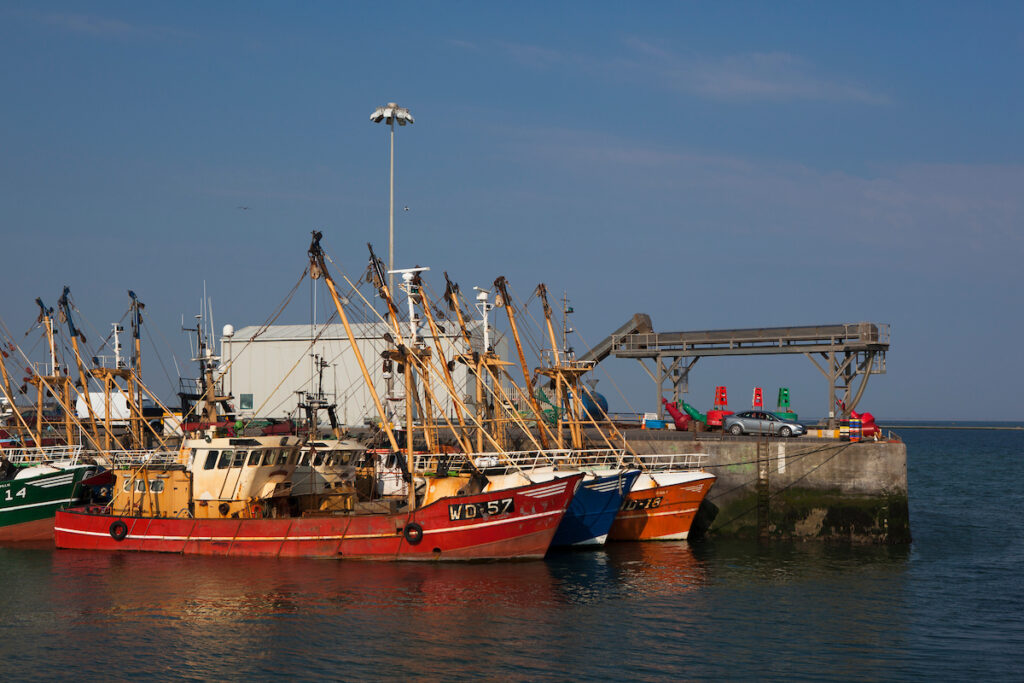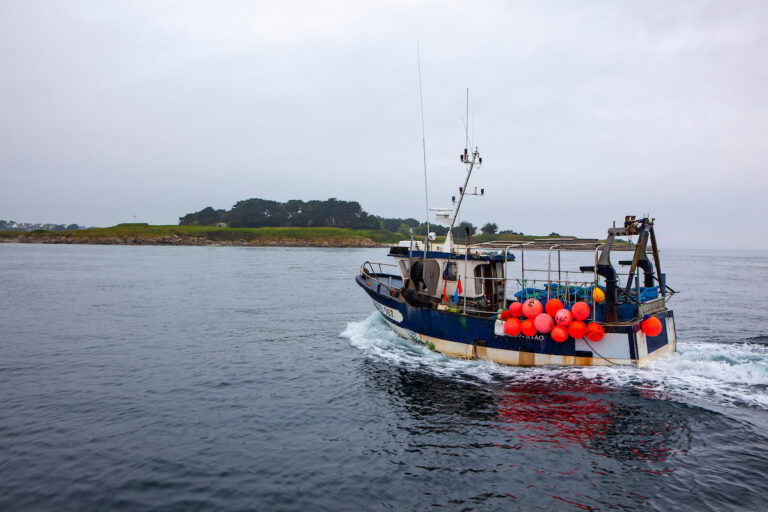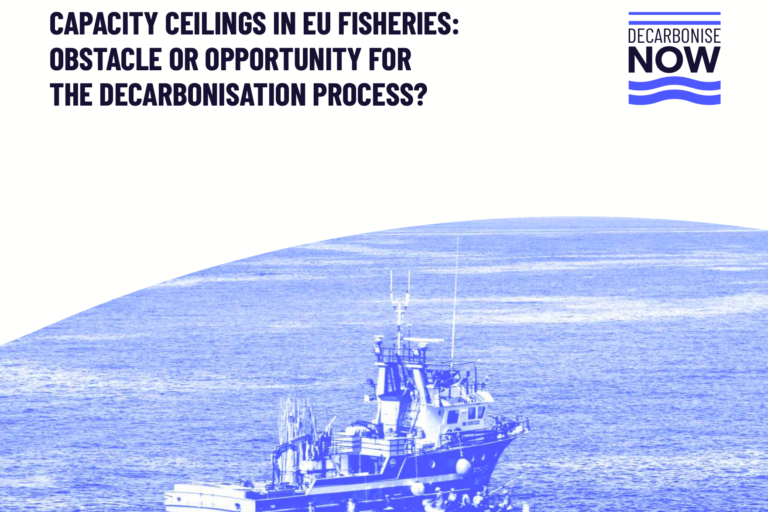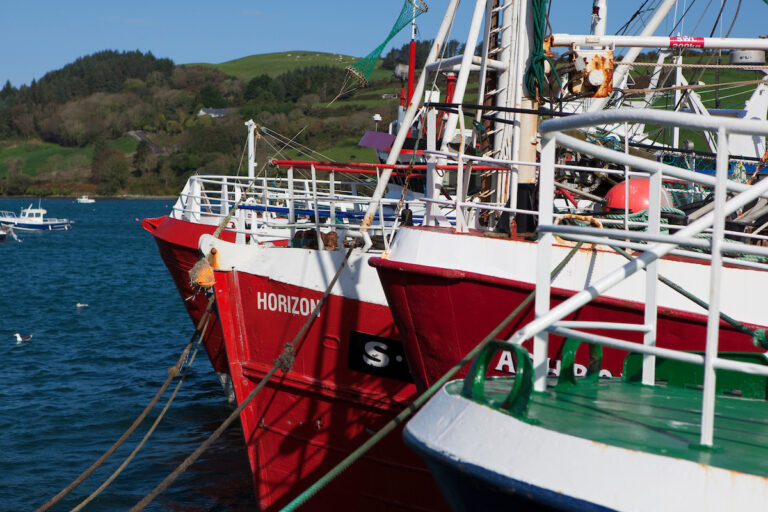
Join our April 16 Briefing: Decarbonising the EU Fishing Sector: Skills and People »
The revision of the Energy Taxation Directive (ETD) is one of the legislations to be adopted under the Fit for 55 package, identified and designed by the EU to achieve its climate change goals [1]. Recently, the EU Climate Change advisory board identified the ETD as key legislation that must be swiftly adopted in order to “better incentivise the deployment of clean alternatives over fossil fuel use”. Meanwhile, the European Environmental Agency stressed in its recent report how unprepared the EU is to face climate changes risks and challenges.
The ETD file has been within the European Union’s decision making process since the release of the proposal by the European Commission in July 2021. This legislation should have become a tool to achieve climate change objectives by incentivising the use of more green energies through different levels of taxation – depending on the production of the energy, and the quality of the energy itself. The aim of the legislation is to tax at a higher rate more polluting forms of energy such as fossil fuel, including in the fishing sector.
The Belgian Presidency
However, the ETD file has not been popular, despite its concrete potential to incentivise right tools for achieving climate change. Various EU presidencies have worked on it, more or less reluctantly. In the European Parliament, the dossier is in the hands of rapporteur Johan Van Overtveldt – a member of the Nieuw-Vlaamse Alliantie (Belgium) and the right-wing Conservatives and Reformists group in the Parliament – where it has been blocked since September 2022.The current Belgian presidency has been keen on sealing a deal on the ETD at Council level under their presidency, and to do so have been willing to give in to any exemptions requested by any Member States, as a recently leaked version of the compromise revealed. Instead of facilitating an agreement as a rapporteur should do, Van Overveldt seems to have pushed his own agenda in the European Parliament. Failing to find a viable agreement in the Fiscal Committee in mid-March has made it impossible to have a vote in the Plenary at the end of April. The opinion of the European Parliament is a necessary formality for the proposed ETD to become an applicable legislation. However, the possibility of an agreement under this legislature has faded away, after political parties could not accept some proposals made by the rapporteur, Mr Van Overtveldt. A source in the European Parliament, close to discussions, shared that the main issue was related to an obligation for all member states to not tax electricity in the ten years after the legislation entered into force.
Such an obligation would greatly impact each member state’s right of decision in taxation matters, which according to the Treaty on the Functioning of the European Union, belongs primarily to the member states. The rapporteur also proposed to have no indexation of taxation rates over time, which with the passing of years would result in having lower and lower taxation rates – thus defeating the directive’s objectives of having an harmonised set of taxation to incentivise green energies. However, if the more polluting energies would have a very low taxation rate over time, the incentives to go for greener, less taxed energies, would also fade away.
Finally, the rapporteur proposed to delay the entry into force of fuel taxation in the maritime, aviation and fisheries sectors until 2030. Maintaining indirect fossil fuel subsidies for such a long period of time would slow further down the uptake of greener energies as well as disincentivise the much-needed start of the decarbonisation process.
Is this a real loss? </strong >
This is questionable. If it had been successful, the ETD legislation proposal as modified by the Belgian presidency and by European Parliament would have been emptied of its true purpose, which is about creating a set of harmonised taxation rates to incentivise green energies. Instead, fuel tax exemptions would have been in place beyond 2050, which is the deadline to achieve a carbon neutral EU under the EU climate law.
In the existing legislation, indirect fossil fuel subsidies in the form of tax exemptions cover a large range of economic sectors while sectors that are providing or using green energy do not benefit from preferential taxation rates. In addition there is no indexation mechanism so that the level of taxation remained ridiculously low throughout the time of implementation.
The Commission’s ETD proposal sought to change this pattern by lowering taxation for green alternative fuels and energies. However, it remained very weak when it came to taxation of carbon-rich energies, keeping a wide range of exceptions for fossil fuel used in various sectors. In this sense, taxation was not a carbon content related taxation. The carbon content of an energy product indicates the fact that this energy will release carbon emissions. Taxing more of these energies creates an economic incentive to move away from high carbon content energies and shifting to greener alternative fuels.
A truly ambitious revised ETD should have taxed the greener energies at a lower or at zero level, while taxing carbon rich energies at a higher rate. This would have supported economically effective changes towards decarbonisation. EU member states could have decided to redirect income from taxation towards financing and supporting decarbonisation. Such a link has never been made in the proposed legislation by the Commission nor in agreements proposed in Council or in the fiscal committee of the European Parliament.
In the midst of the climate change crisis, it is surprisingly irresponsible that decision-makers fail to find agreement on an important file that is meant to incentivise the achievement of climate change objectives. But maybe it is better to wait for the arrival of better decision-makers that might be able to have a more long term approach on taxation and supporting climate change objectives. Will the upcoming climate-sceptical Hungarian EU presidency be able to provide those types of decision makers? Or will those arrive in the form of MEPs elected in the forthcoming EU parliament elections, although the pools show a dangerous move towards the extreme right, not exactly a climate change engaged party? Or perhaps a newly appointed European Commission will decide to withdraw the current proposal and table something more bold that cannot be watered down so shamelessly by decision makers.
The Future of Fisheries
What does all this mean for EU fisheries? Some fishers might be delighted to see that the good old fossil fuel subsidies are maintained for the unforeseeable future or at least until the ETD is finally revised. But is retaining all these fossil fuel subsidies really a gain? In February 2023, the European Commission launched an action plan to start the energy transition of the fisheries sector. Maintaining fossil fuel subsidies in the form of fuel tax exemptions is the wrong economic incentive to start an energy transition towards greener energy, as it will maintain the illusion for the sector that business as usual will continue. But business as usual has its drawbacks. The part of the fisheries sector that benefits the most from fossil fuel subsidies are those parts that use either greater energy intensive or more destructive fishing practices.
An energy transition that questions only the impacts in terms of direct emissions of greenhouse gases misses the point of rethinking the type of EU fisheries that we can afford environmentally, socially and economically. Indirect emissions of greenhouse gases through seabed contact such as bottom trawling are a reality, what is left for science to determine is how much of these remain suspended and how much goes back into the atmosphere. By financially supporting all types of EU fishing fleets without taking into account any criteria other than their mere existence or the amount of fish extracted, or without incentivising those who have the least impact on the marine environment and fish stocks will lead a failure to preserve the marine ecosystem and the very resources that underpin the economic activity of fishing.
The continued doling out of fossil fuel subsidies is beneficial to the more industrial and large scale fleets, fleets that are also the least socially fair. To get the energy transition right we need to assess all impacts of fisheries in all EU waters and member states as it was made recently by multidisciplinary scientists in France. Only on the basis of such assessments – as suggested by Bloom Association – can society, decision makers and fishers choose what type of fisheries we can afford and want to promote. In fact, our entire economic system must change to revert the major climate and biodiversity crisis that it has generated. EU fishers cannot think that they will remain outside of this major impending shift – which is set to happen anyway because economies as well as citizens, irrespective of subsidies, will move away from the past. If we do not seize the opportunity to change, then it is the subsistence of humankind itself that will be at stake, with major social crises to become more and more frequent and violent.
As the Bloom report, Time for a U-Turn demonstrates, there is a path forward for the fishing sector, but to take this path means making many changes, including ending harmful public subsidies, and making changes in how we use and depend upon the ocean.
Flaminia Tacconi is a Senior Lawyer at ClientEarth
Notes:
[1] As a reminder, the European rules on the taxation of energy products are set out in the European Energy Tax Directive (ETD), which was adopted in 2003. The text exempts a number of economic sectors, including aviation, maritime transport and fishing. As part of the objectives set out in the Green Deal, in 2021 the European Commission presented a proposal for a revision of this directive, which includes a restructuring of tax rates based on environmental performance.
Join our April 16 Briefing: Decarbonising the EU Fishing Sector: Skills and People »





